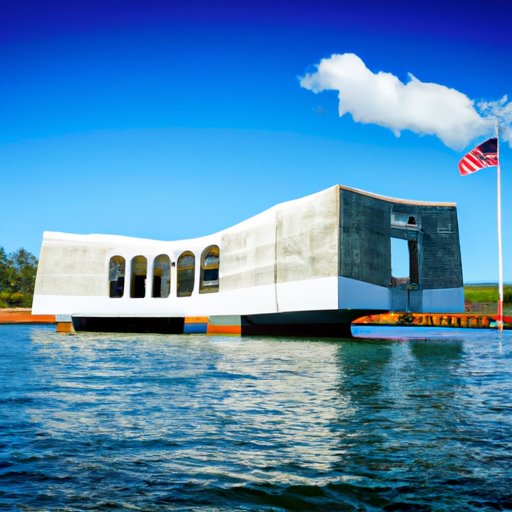I. Introduction
On December 7, 1941, the world was shocked by Japan’s surprise attack on the U.S. naval base at Pearl Harbor, Hawaii. This act of aggression caused the United States to enter World War II and forever marked the history of international conflict. But why did Japan attack Pearl Harbor? In this article, we will explore the historical context, strategic significance, and actual reasons behind Japan’s decision to launch this deadly attack.
II. The Historical Context of Japan’s Attack on Pearl Harbor: Understanding the Tensions and Motivations Behind the Surprise Attack
Japan had a long history of isolationist policies until the late 19th century when it began to modernize and expand its power into East Asia. Its rapid industrialization and militarization alarmed other major powers, including the United States. In 1915, the U.S. Congress passed the Immigration Act, which barred Japanese immigrants from entering the country.
Tensions between Japan and the U.S. continued to grow, especially after Japan invaded China in 1937. The U.S. responded with economic sanctions, including an embargo on oil, which was vital to Japan’s war effort. As Japanese troops occupied more of China, the U.S. tightened its sanctions, further reducing Japan’s access to vital resources. These tensions laid the foundation for the Pearl Harbor attack.
III. The Strategic Significance of Pearl Harbor and Japan’s Calculated Gamble
Pearl Harbor was a critical naval base for the U.S. Pacific Fleet, which Japan saw as a significant obstacle to its expansion in the region. Japan’s plan was to destroy the fleet and take control of the Pacific, with the ultimate goal of becoming the dominant power in Asia.
Japan’s attack on Pearl Harbor was a calculated gamble, as it knew that the U.S. was a formidable opponent that could potentially turn the tide of the war. Nevertheless, Japan believed that a swift and decisive strike would cripple the U.S.’s ability to respond and force it to negotiate a peace treaty, allowing Japan to solidify its position in the Pacific.
IV. The Role of American Economic Sanctions in Provoking Japan to Attack Pearl Harbor
Japan’s decision to attack Pearl Harbor was partly motivated by the economic sanctions imposed by the U.S. As mentioned earlier, the U.S. imposed an oil embargo on Japan, which severely impacted its economy and war efforts.
In response, Japan turned to Southeast Asia for the resources it needed to continue its war effort. However, the U.S. saw this as a threat to its own interests in the region and further tightened its economic sanctions. Japan felt it had no choice but to launch a preemptive strike on the U.S. before its economy and military were crippled beyond repair.
V. Examining the Actual Reasons for Japan’s Attack on Pearl Harbor: Debunking Common Misconceptions
There are many misconceptions surrounding Japan’s attack on Pearl Harbor, including the idea that it was a surprise attack that came out of the blue. However, Japan had been planning the attack for months and even attempted to negotiate a peace treaty with the U.S. prior to launching the attack.
Another misconception is that Japan intended to invade and conquer the U.S. mainland. In reality, Japan’s ultimate goal was to gain control of the Pacific and establish itself as a dominant power in Asia.
VI. Pearl Harbor and the Pacific War: How Japan’s Attack Marked the Beginning of a Brutal Conflict
The aftermath of the Pearl Harbor attack was devastating. The U.S. lost 2,403 soldiers, sailors, and civilians, and numerous ships and aircraft were destroyed. In response, the U.S. declared war on Japan, and soon after, Germany and Italy declared war on the U.S.
The Pacific War would become one of the deadliest conflicts in modern history, with millions of lives lost on both sides. Japan’s attack on Pearl Harbor marked the beginning of this brutal conflict and forever changed the course of world history.
VII. Conclusion
Japan’s decision to attack Pearl Harbor was the result of a complex web of tensions and motivations. While economic sanctions played a significant role in Japan’s decision, there were also long-standing political and territorial disputes that contributed to the attack.
Understanding the historical and strategic context behind Japan’s attack on Pearl Harbor is essential to comprehending the larger narrative of World War II. We must continue to investigate and learn from this history to ensure that we prevent similar tragedies from occurring in the future.
